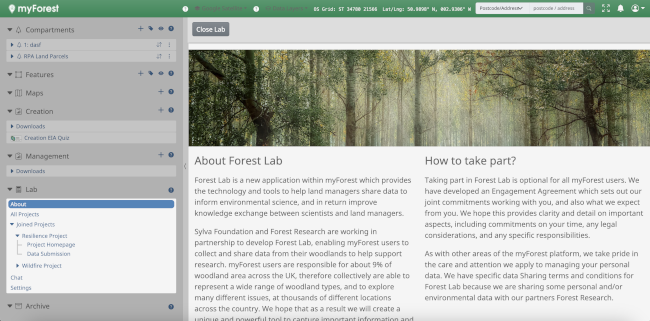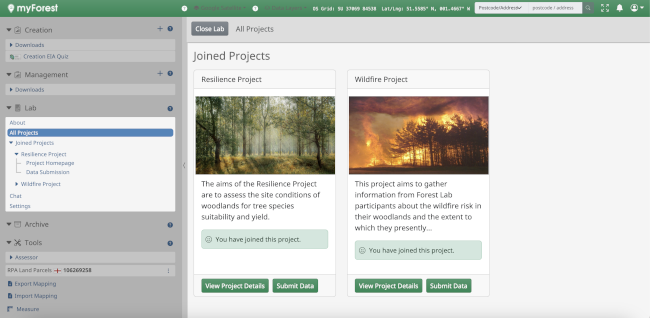Woodland owners and managers across the country are being asked to help expand a GB-wide network of pheromone traps. Taking part will help improve understanding of the eight-toothed spruce bark beetle, Ips typographus, and will further develop the early warning system preventing the spread of this damaging pest.
The eight-toothed spruce bark beetle is a serious pest on spruce in Europe and has been found in the wider environment in England as part of routine plant health surveillance activity. If left uncontrolled, the beetle has the potential to cause significant damage to Britain’s spruce-based forestry and timber industries. Spruce trees are a major component of our forestry industry, making up around 50% of commercial planting in the UK and supporting thousands of jobs.
If you are an existing myForest user, simply login to myForest and navigate to Forest Lab to join the programme and apply to take part in the Ips Project. If you are NOT an existing user you can complete this expression of interest form.
Applications will be reviewed and suitable candidates will be invited to a training webinar. All materials required to take part (including the trap) will be posted out to candidates.
Taking part in Forest Lab requires an account on the myForest platform (this includes free accounts).
An Engagement Agreement sets out our joint commitments in working with you, and also what we expect from you in return. We aim to provide clarity and details on important aspects, including commitments on your time, any legal considerations, and any specific responsibilities.
As with other areas of the myForest platform, we take pride in the care and attention we apply to managing your personal data. We have specific data sharing terms and conditions for Forest Lab because we are sharing some personal and/or environmental data with our research partners.
Forest Lab is an application within myForest which provides technology and tools to help volunteer land managers share data to inform environmental science, and in return improve knowledge exchange between scientists and land managers.
Sylva Foundation and Forest Research are working in partnership to deliver Forest Lab, enabling myForest users to collect and share data from their woodlands to help support research. We have also started working with external researcher partners, including a university.
myForest users are responsible for about 9% of woodland area across the UK, therefore collectively are able to represent a wide range of woodland types, and to explore many different issues, at thousands of different locations across the country.


Forest Lab provides valuable data for scientists and practical engagement with volunteers, supporting projects which explore a growing range of topics:
In Development - new projects are currently in development and the project team is always keen to hear from other researchers interested in proposing new projects.